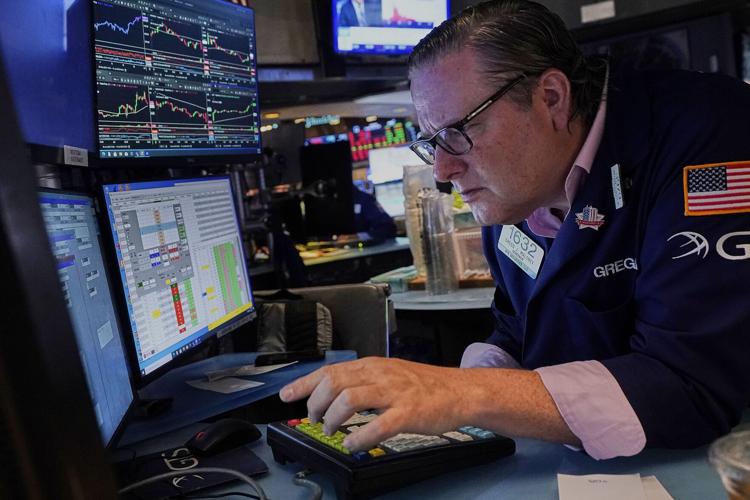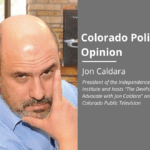The comfort and discomfort of the Biden economy | SONDERMANN

Over recent months, the question has come my way multiple times in various forms.
“Can you explain to me why Joe Biden is taking all of this heat on the economy?”
“The economy doesn’t seem that bad. What gives with Biden’s poll numbers?”
“Inflation is much less than it was a year ago. Why doesn’t our president get credit?”
“We’re doing just fine. Why are so many people so unhappy?”
That last variation is the most telling. As the one thing all such questions have in common is that they come from people of similar economic class and circumstance.
Whether over a social visit or a meal, whether in Denver or in the mountains, or whether in a public setting or over social media, all of these comments originated with people, like me, approaching senior status who are financially comfortable or better than that.
For people toward the end of successful careers or beyond, and those with far more assets than liabilities on their personal balance sheet, these times are not that bad. In fact, for many, they are quite robust.
However, for those on the economic margins of society or for those doing their damnedest to support a family and get to the next paycheck, the anxiety is unrelenting.
Though we are not yet to year’s end, it looks like inflation for 2023 will come in around 3.7%. That is still a high number relative to accustomed norms over the past few decades, when the average annual rate was most often 2% or less.
The damage of inflation is cumulative. 2023 has been hardly the problem year. But it comes on top of 7% inflation in 2021 and 6.5% in 2022, per the U.S. Inflation Calculator.
While the Consumer Price Index includes food and energy prices in its calculus, measurements of what is called “core inflation” omit those two categories due to their price volatility and susceptibility to environmental and geopolitical changes.
It is in those categories of food and energy that inflation has been particularly problematic. One need not be a statistician to gauge these impacts. A trip to the grocery store or gas station or neighborhood restaurant will do the trick.
My wife and I recently went out for breakfast at a favorite place in low-key Granby, Colorado. The price for two orders of huevos rancheros plus an orange juice for me and a fancy coffee for her came to well over $50. A couple of years ago, that same meal might have set us back $30, tops.
We are economically fortunate. Even privileged, as much as I dislike that word. I simply pulled out my credit card. It was not a hardship. But for way too many others, even a casual Saturday breakfast out is prohibitive.
Then, of course, there is the matter of housing costs, for which the Colorado Front Range has become a case study. If you are settled in your house with a long-term mortgage, or one paid off, and no plans to move, the dramatic ramp-up in home values is mostly good news. On the other hand, if you are 30, even one off to a solid career launch, just a starter home is so much wishful thinking, absent some serious help from mom and dad.
Home prices are only half of the equation. The other half is that of mortgage interest rates. The 4.65% mortgage that our 30-something daughter got 18 months ago would today be at 8% or higher.
On a 30-year mortgage for $400,000, the result is an increased monthly payment of nearly $900. That is real money and means that home buyers have far less purchasing power than was the case just a year or two back.
The bottom line is that high interest rates are good news for investors and for those with little mortgage or consumer or business debt. But for those trying to break into the housing market or needing a bank loan to capitalize a small business or using a credit card to finance the replacement for a broken-down refrigerator, such interest is back-breaking.
And my contemporaries can spare me the “you-think-you-have-it-rough” recollections of the double-digit mortgage rates of the late 1970s. First off, that is now approaching a half-century in the past. Moreover, younger generations have plenty of other burdens and challenges today.
Further, we have only talked about homeowners and not renters who suffer equally from inflation without the tax benefits and equity-accumulation. Though not always, renters often represent the lower rungs on the economic ladder and get the worst of all worlds.
As an aside, and though the election is now at hand, the oh-so-egalitarian Democratic types behind Proposition HH have some explaining to do for how and why their formulation treats renters as so much afterthought. Bear in mind that a solid one-third of Coloradans rent their living quarters. That portion is significantly higher in marginalized communities.
The headline of this column references the “Biden economy.” Clearly, not all the responsibility for rampant inflation belongs to him. As a rule, politicians receive too much credit for good times and too much blame when things turn sour.
Inflation is a function of too much money and too much demand chasing too few goods. That precisely describes the situation in this country and many others coming out of the depths of the pandemic.
Any president sitting in the Oval Office in 2021 and 2022 was fated to wrestle with substantial inflation. That burden fell to Joe Biden. At a minimum, it can be argued that he presided over an over-stimulation early in his term, just as the economy was already rebounding and heating up on its own momentum.
To a very large extent, Biden’s political fortunes next year will rise or fall based on voters’ assessment of his economic stewardship.
Our times are rife with divides. That fact envelops us almost on an hourly basis. The wealth gap is one such growing polarity. Whether the Biden economy works for you or against you depends very much on where you sit.
If you are an investor and fall in the economic comfort zone, prices are manageable, even if painful, and high interest rates are somewhere between inconsequential and beneficial.
Conversely, if you are outside that comfort zone, struggling intently to make ends meet, juggling jobs but without a real career, trying to start a business or seeking to buy a first house or even to upgrade into a larger home, defeat or despair is an all too frequent reaction.
In a battle between economic indicators and people’s lived experience, put your stock in the latter.
Eric Sondermann is a Colorado-based independent political commentator. He writes regularly for Colorado Politics and the Gazette newspapers. Reach him at?EWS@EricSondermann.com; follow him at @EricSondermann















